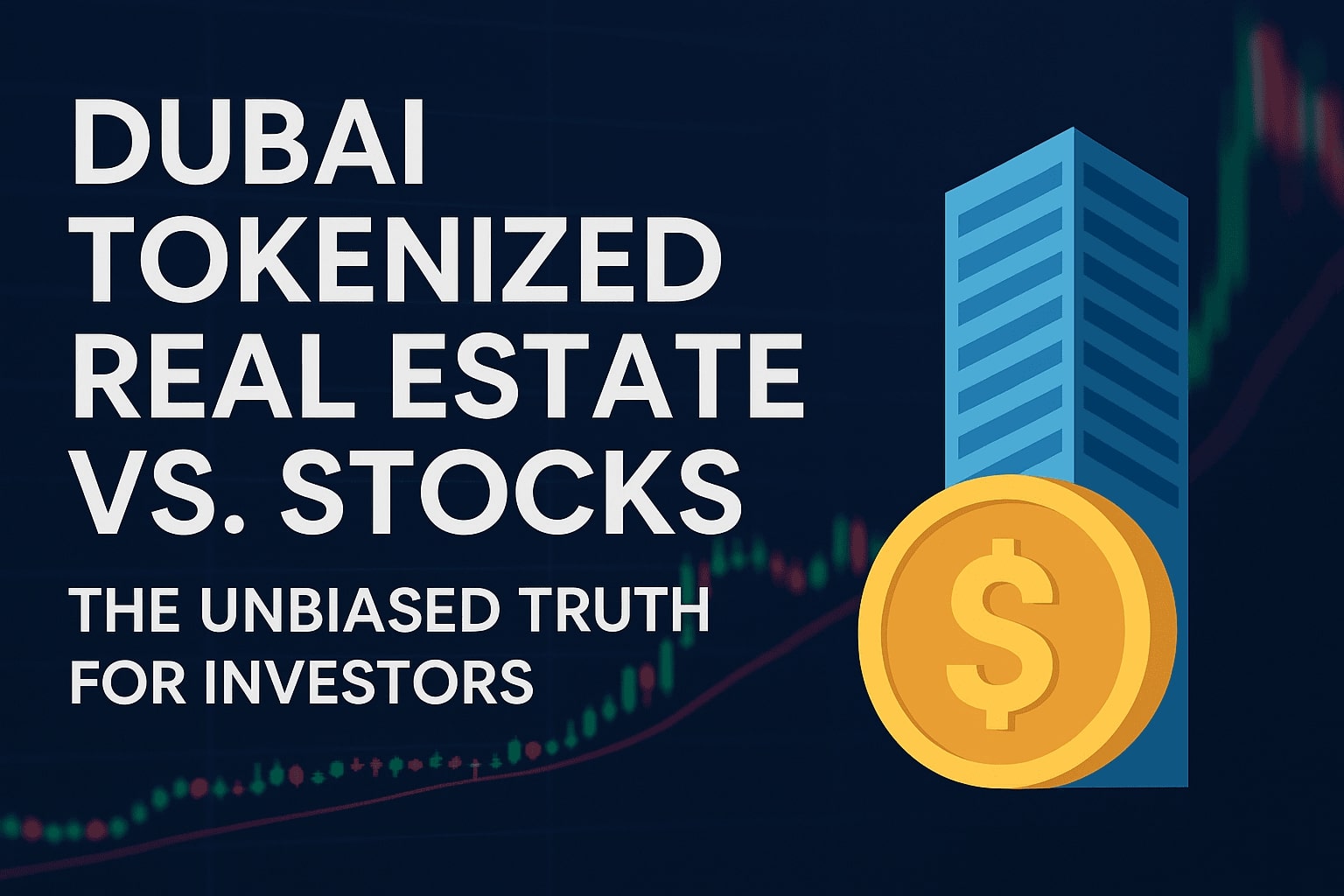
Key Takeaways
- Tokenized real estate in Dubai lets you invest in fractional property ownership via blockchain platforms.
- Your returns are reduced by platform fees — unlike direct ownership, where you keep all gains.
- Market timing matters: if Dubai property prices are already at a peak, capital gains potential is limited.
- Stocks offer more liquidity and easier diversification, but tokenized real estate offers rental income backed by a physical asset.
Real estate tokenization is quickly becoming one of Dubai’s most talked-about investment trends. By using blockchain technology, high-value properties can be divided into smaller, tradeable units—allowing investors to buy in with far less capital than traditional real estate purchases. But how does this compare to the tried-and-tested stock market? In this guide, we break down the facts so you can decide which investment path suits your goals.
What is Tokenized Real Estate in Dubai?
Tokenized real estate converts property ownership rights into digital tokens stored on a blockchain. Each token might represent a share in a Special Purpose Vehicle (SPV) that owns the property or a contractual right to a portion of its income. The main appeal? Investors can enter the market with a much smaller budget, enjoy more transparent ownership records, and potentially trade their stakes faster than selling a physical property.
In Dubai, tokenization is often marketed as a way to invest in prime developments with smaller ticket sizes, sometimes as low as a few hundred dollars.
Two Hard Truths You Need to Know
- Your Returns Will Not Match Full Property Ownership
- Direct buyers in Dubai keep all capital gains and rental income.
- Tokenized investors pay platform fees for setup, management, trading, and income distribution — reducing net returns.
- You Might Be Buying at the Peak
-
- Dubai’s property market has cycles. If you invest when prices are already high, capital appreciation potential is low.
- In this case, your returns will likely come from rental yields only — not double-digit capital gains.
Pros of Tokenized Real Estate in Dubai
- Fractional access to luxury or prime-location properties without millions in capital.
- Passive rental income proportional to your token holdings.
- Potential liquidity via secondary token trading (faster than selling a full property).
- Inflation hedge as rents in Dubai can adjust upwards with demand.
Cons of Tokenized Real Estate
- Platform fees reduce total returns.
- Market cycle risk — buying late limits upside potential.
- Liquidity risk — secondary token markets are still young and may not always have buyers.
- Platform dependency — your asset is tied to the company’s governance, compliance, and financial health.
Dubai Tokenized Real Estate vs. Stocks
| Factor |
Stocks |
Tokenized Real Estate (Dubai) |
| Liquidity |
Very high — can sell in seconds |
Medium — depends on token market activity |
| Volatility |
High |
Lower |
| Income |
Dividends (not guaranteed) |
Rental yields from Dubai tenants |
| Asset Backing |
Company shares |
Physical property in Dubai |
| Diversification |
Easy across industries & geographies |
Primarily property-focused |
Bottom Line
Tokenized property in Dubai can be a legitimate way to gain real estate exposure without large upfront costs or direct management responsibilities.
But it’s not a magic shortcut to the windfall profits made by early buyers in a hot market.
If you buy late in the cycle, expect steady rental income, not rapid price jumps — and remember that fees will eat into your returns.
For most investors, tokenized property should be seen as a long-term, income-focused play — ideally part of a diversified portfolio that also includes more liquid assets like stocks.